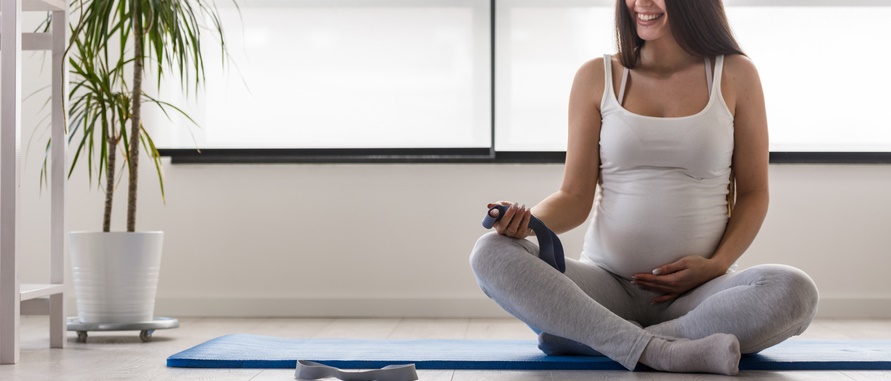Musculoskeletal pain during pregnancy? It might be time to visit a physical therapist.

Written by Lauren Carney, a physical therapist who specializes in pelvic health.
Pregnancy is often an exciting time for women and their families. However, if you are pregnant and experiencing pain, your symptoms may have a significant impact on your quality of life and hinder you from completing your daily tasks.
If you are suffering from musculoskeletal pain during pregnancy, a pelvic health therapist may be able to assist in improving your function and decreasing pain. Pelvic health physical therapists are specially trained to treat both the pelvic musculature and the surrounding structures, and they have a particular interest in supporting women throughout pregnancy and into the postpartum period.
What are the symptoms of musculoskeletal pain during pregnancy?
Women often experience low back pain, pelvic pain, sacroiliac joint pain and/or hip pain during pregnancy. Pain can occur at the front or the back of the pelvis and can be achy, sharp, radiating or burning. Pain at the front of the pelvis is often related to the pubic symphysis joint, where the two sides of the pelvis join. These types of pain may be exacerbated by bending over, walking, prolonged standing, rolling over in bed, or getting in and out of a car.
Why do pregnant women experience pain?
Many changes occur during pregnancy. The body releases a hormone known as relaxin, which causes joints to become looser than normal. Your posture also adapts to accommodate your changing frame: Your lower back will gradually curve more, the hips will move forward and the pelvis tilts forward. In addition, increased weight, especially in the abdomen, may increase strain on your body.
How will I be evaluated?
If you are suffering from pregnancy-related pain, you should let your doctor know. They can write a referral to physical therapy services if this is appropriate for you. You can expect your first visit to last about an hour. A physical therapist will evaluate your posture, range of motion, strength, pain levels and overall function.
How is it treated?
Your treatment plan will be designed specifically for you. Treatments for pain during pregnancy usually include exercises for gentle stretching and strengthening, manual techniques and joint mobilizations, and education. It may be appropriate for you to try a maternity support belt, which improves postural support and minimizes the effect of a growing abdomen.
The goal of physical therapy is to provide safe and effective treatment for your symptoms so that you are able to maintain comfort and perform your normal activities throughout the remainder of your pregnancy.





